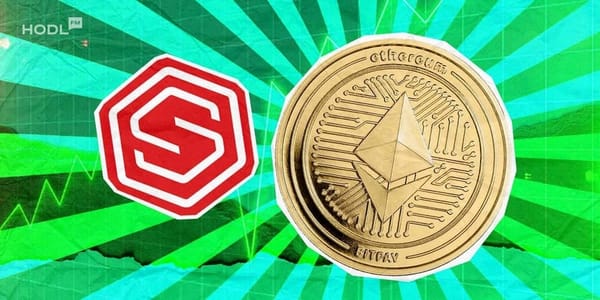Ethereum released 1TS, its latest report that maps existing risks that ETH should address before it supports a global trillion-dollar economy.
The report documents an initiative that Ethereum unveiled on May 14, the Trillion Dollar Security (1TS), an ecosystem-wide project to revamp Ethereum’s security, bring individuals to HODL a minimum of $1000 each onchain, and institutions/governments to comfortably move or store over $1 trillion within single smart contracts while being able to conduct transactions.
0. Last month we announced the Trillion Dollar Security (1TS) initiative: an ecosystem-wide effort to upgrade Ethereum’s security.
— Ethereum Foundation (@ethereumfndn) June 10, 2025
Today we’re releasing the first 1TS report: an overview of the existing security challenges in the Ethereum ecosystem. pic.twitter.com/R1dhY34pDT
Feedback from Developers, Institutions, Security Professionals, and Users
This initiative was born out of gathered feedback from developers, institutions, users, and security experts, where the Ethereum Foundation enquired about areas that face significant challenges and need improvement.
According to the restructuring report, the team identified significant challenges and vulnerabilities across six primary areas: smart contracts, user experience, governance, consensus, infrastructure, and incident response.'
ETH 10K soon, they said pic.twitter.com/RGL2BET9fQ
— naiive (@naiivememe) June 11, 2025
Key User Experience Challenges
‘A significant burden of security falls on the user,’ says the report when describing the significant UX challenge that Ethereum users face due to the atomic nature of cryptocurrency transactions.
Users lack the opportunity to intervene or reverse a transaction, which, of course, is designed to achieve a strong security guarantee. However, this feature has many operational risks where a single compromised key or mistake could trigger irreversible loss.
In my opinion, Ethereum will be convenient for a trillion-dollar scale economy when users (individuals and organizations) can comfortably and securely hold and manage their keys. These two are integral in signing off transactions or when transferring assets. Unfortunately, there are still some risks and challenges associated with the users holding the key, including the risk of compromise, uninformed approvals, or loss.
It was great to meet with the EF and provide feedback on the insanely important Trillion Dollar Security (1TS) initiative.
— Leuts.eth (@A_Leutenegger) June 10, 2025
There's so much we can improve for organizations and users to effectively and safely manage their resources and assets, particularly for orgs in… https://t.co/R9lEfVvxHt
Other Vulnerabilities that Ethereum will Address
The 1TS report also discussed smart contract security, which, despite a decade of improvement, still faces profound upgrade risks, little to no adoption of formal verification, and access control failures.
Moreover, the centralized infrastructure that Ethereum is dependent on, such as RPC providers, cloud hosts, and DNS, may undermine the decentralization of the Ethereum network. The rise of Layer-2 networks building on Ethereum has introduced new challenges, too; meanwhile, there is also an increased risk of ISP-level censorship and DNS hijacking.
At the consensus level, the report highlighted centralization risks caused by a large number of validators working with large, concentrated custodial liquid staking protocols. This might cause future challenges around consensus, governance, and outsized influence.
In addition, 1TS also noted that governance on Ethereum faces a potential attack vector against its vast network of developers and institutions.
As per the new Ethereum Foundation report, addressing the above limitations is integral in aligning ETH with the global economy. The network already supports over $600 billion in on-chain capital and millions of ecosystem users. The 1TS initiative will play a core role in helping Ethereum succeed in its goal and unlock the next phase of growth and adoption.

Disclaimer: All materials on this site are for informational purposes only. None of the material should be interpreted as investment advice. Please note that despite the nature of much of the material created and hosted on this website, HODL FM is not a financial reference resource, and the opinions of authors and other contributors are their own and should not be taken as financial advice. If you require advice. HODL FM strongly recommends contacting a qualified industry professional.





